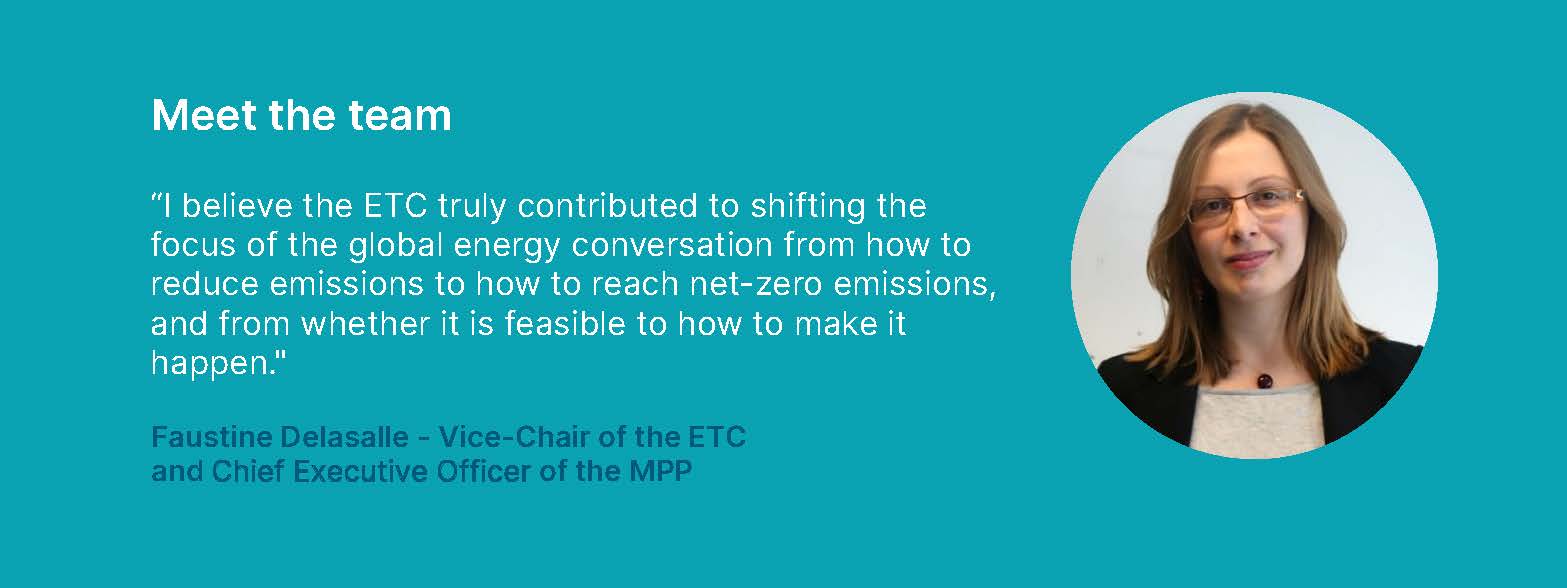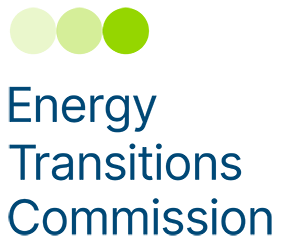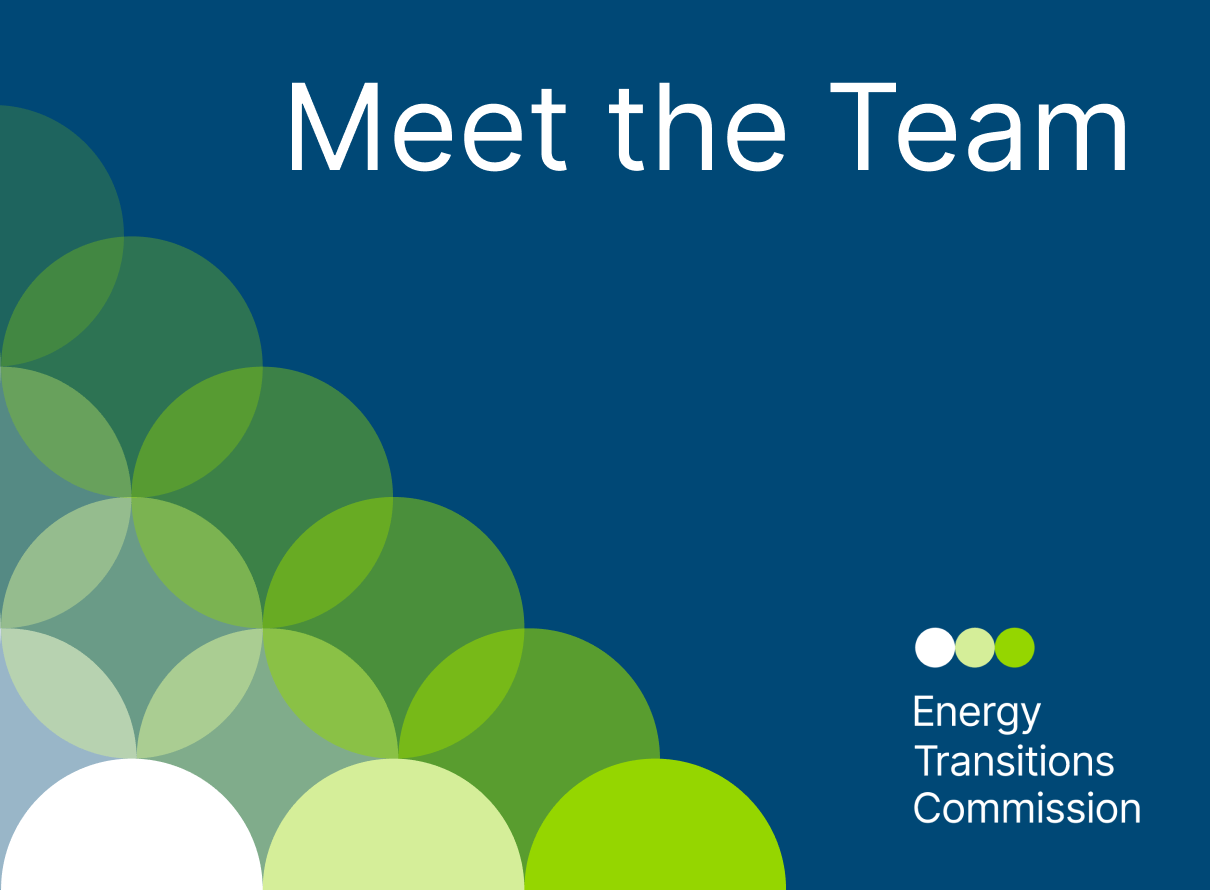Today we introduce Faustine Delasalle, Vice-Chair of the Energy Transitions Commission and Chief Executive Officer of the Mission Possible Partnership. Faustine has been a part of the ETC since its inception in 2016. She has been an integral part of the ETC’s growth, strategy and impact.

What made you join the ETC?
I joined the ETC in April 2016, shortly after its inception. It was still unclear at the time what the ETC would be and how much impact it could have. What attracted me at the time was the unique theory of change: the intent was to bring around the same table very diverse leaders, with traditionally diverging views, from oil and gas majors to environmental NGOs, and try build a shared vision of the energy transition. We knew it would be challenging. What we didn’t know is how impactful this model would be: over the last seven years, the ETC’s influence on the global energy debate has surpassed anything I had dreamt of.
What is your proudest achievement to date at the ETC?
It’s difficult to pick one. I will mention three:
- I believe the ETC truly contributed to shifting the focus of the global energy conversation from how to reduce emissions to how to reach net-zero emissions, and from whether it is feasible to how to make it happen. The fact that this message of ambition and hope came from a group of leaders from major companies rather than NGOs or academia made a difference.
- I’m very proud of the wonderful team we’ve brought together. For the first couple of years, the ETC team was a “one-woman band”. Today, it’s a close squad of passionate and brilliant people, who partners up generously with many other organisations spanning multiple continents.
- I can still remember the day we received the first printed copies of the Mission Possible report, with its flashy orange cover, in 2018. It was the first major global report demonstrating that it was feasible to reach net-zero emissions in harder-to-abate industry and transport sectors. This was the start of a journey: we created and spun out another organisation called the Mission Possible Partnership, which is now solely focused on this mission.
What does the energy transition mean to you?
I think the term “energy transition” doesn’t convey the scale, complexity, and urgency of the changes it entails.
- Scale: Energy is the backbone of the whole global economy.
- Complexity: Shifting from fossil energy to renewable energy is not just about changing energy sources, it entails a profound transformation of many energy-using value chains: for instance, many houses will be heated with heat pumps rather than boilers, and steel will be produced with a new industrial process in new plants.
- Urgency: 2030 is tomorrow, and major changes need to happen before tomorrow. Those changes entail massive investments (although only a small percentage of global GDP), and investments take time to be decided and more time to be built. We are running against the clock!
On the pathway to net–zero, what do you see as the biggest obstacle?
I think it’s political will. The energy transition is an industrial revolution. Every industrial revolution comes with short-term winners and losers, even if it brings benefits to society as a whole. Certain economic activities need to be phased out, like unabated fossil fuels. Cheap renewable energy in regions like Australia will likely redesign the global map of energy-intensive industries. Poorer countries and poorer households in both developed and developing countries struggle to make the required investments, be that investing in solar for Sub-Saharan African countries or buying an electric car for many families in rural Europe. It’s a tough job to navigate all those tensions and trade-offs. It requires bottomless wells of political leadership.
What are you most excited about that is coming up at ETC and MPP?
The ETC is about to start its third act. The first one was all about showing that the transition to net zero is feasible. The second one was about how to make that transition happen. The third one opens at a time when the transition is accelerating but not yet fast enough. So, we will spend much more time on “What are the major barriers that the transition is facing and how can we lift them?”.
On the MPP front, I’m really excited that we’re now shifting from vision setting to unlocking a first wave of deep decarbonisation projects in some of the hardest-to-abate industry and transport sectors. We are starting to work with industrial companies that are real “doers” and have first projects in the pipeline. We help them improve value chain collaboration and policies to turn risky projects into money-making investments.
What is the best piece of advice that you received from an ETC colleague?
One of the many things Adair is brilliant at is telling compelling stories. I love concepts and frameworks but try to always keep in mind his advice to back them with specific examples. Most people will remember a good story more than they will remember key figures. I should know that as I’m one of them!


